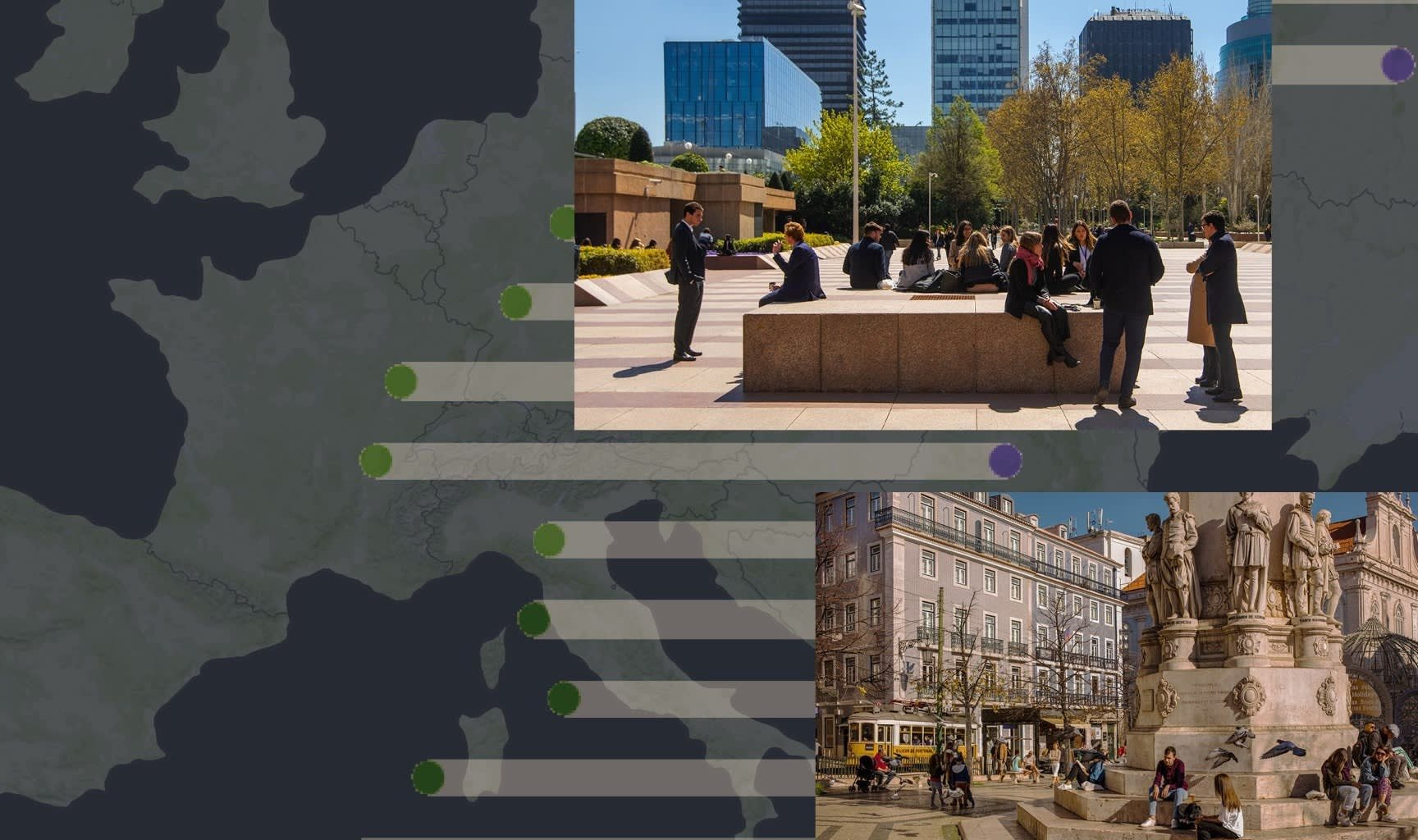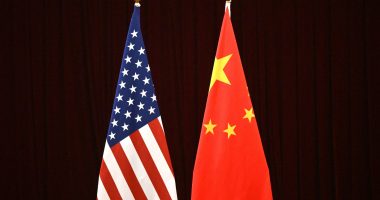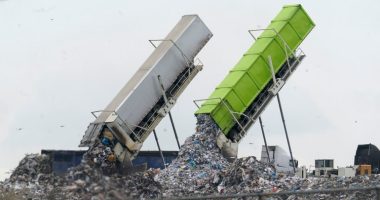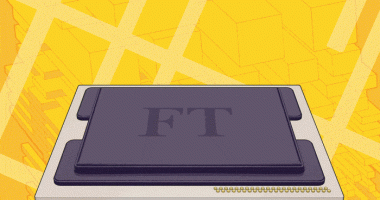Stay informed with free updates
Simply sign up to the World myFT Digest — delivered directly to your inbox.
Good morning.
Iran activated air defence systems and shot at several unidentified small airborne vehicles in the early hours of Friday, state television said, amid fears that Israel was taking retaliatory action for last week’s drone strike by Tehran.
Earlier reports in Iran said that explosions were heard near the cities of Isfahan, in central Iran, and Tabriz in the north west, according to the Tasnim news agency, which is close to Iran’s elite Revolutionary Guards. Isfahan is home to a major base for the Iranian military.
Tasnim reported that the military air base and the nuclear installations in Isfahan were safe and rejected reports of any attack from outside the country.
Oil futures jumped following the reports. Futures for Brent crude, the international oil benchmark, rose as much as 4.2 per cent to $90.75 per barrel while West Texas Intermediate, the US marker, gained as much as 4.3 per cent to $86.28 per barrel.
We’ll bring you the latest updates on this developing story here.
-
Palestine: The US vetoed a UN Security Council resolution yesterday that would have granted a Palestinian state full UN membership.
-
Middle East tensions: Iran has warned Israel it is likely to review its nuclear stance if its atomic facilities are threatened.
Here’s what else I’m keeping tabs on today and over the weekend:
-
UK: Prime Minister Rishi Sunak is set to unveil measures to crack down on welfare claimants and what he described as Britain’s “sick note culture”.
-
Sport: The International Olympic Committee holds an event in London today on possible applications of artificial intelligence at the Olympics. The London marathon starts on Sunday.
-
India election: The first phase of voting in the country’s six-week election started today. The world’s largest democracy is expected to hand Prime Minister Narendra Modi a third term in power.
How well did you keep up with the news this week? Take our quiz.
Five more top stories
1. The EU energy regulator has warned the bloc still needs to import Russian liquefied natural gas to avoid an energy shock, even as a group of member states seeks to ban purchases of the fuel from Moscow. Acer said today that efforts to curb Europe’s record imports of Russian LNG “should be considered in gradual steps”.
-
EU integration: More than a dozen smaller EU states fought back against efforts to unify Europe’s fragmented capital markets at a summit yesterday.
-
Post-Brexit trade: The UK will not “turn on” critical health and safety checks for EU imports when post-Brexit border controls begin this month because of the risk of “significant disruption”.
2. Netflix blew past Wall Street’s earnings forecasts yesterday after launching its crackdown on password sharing last year. The company’s operating income surged 54 per cent in the first quarter as it added 9.3mn subscribers worldwide, but shares fell after it said it planned to stop regularly disclosing subscriber numbers. More from the streaming platform’s latest results.
3. Google will streamline its structure to speed up its artificial intelligence efforts after facing criticism for falling behind rivals such as Microsoft. All teams working on its AI models, including its flagship Gemini chatbot, will be unified under its DeepMind division run by Demis Hassabis. Here’s more from CEO Sundar Pichai’s memo.
-
More on AI: Meta has released a new and less “sanctimonious” version of its AI model, Llama 3, in response to criticisms that the previous version refused to answer “innocent and innocuous” questions.
4. Exclusive: A London-based hedge fund is pushing for Ukraine’s state grid operator to be excluded from the country’s looming debt restructuring, as creditors start to take a tougher stance after a two-year reprieve on repayments in the wake of Russia’s invasion. VR Capital, a longtime investor in Ukraine, is a member of a group that is asking Ukrenergo to deal with its creditors outside a debt relief plan that Kyiv will soon pitch to holders of about $20bn of foreign currency bonds, said people familiar with the matter. Read the full story.
5. Some lenders to Thames Water would lose up to 40 per cent of their money if the utility were nationalised under UK government contingency plans dubbed “Project Timber”. The plans were first drawn up by the Treasury and the environment department last year, although officials insisted yesterday that the collapse of Britain’s biggest water company was not imminent. Here are more details from the leaked plans.
-
Related: Thames Water must sort out its own financial problems, chancellor Jeremy Hunt has said, as he warned that the government would never insure investors against poor decisions.
The Big Read
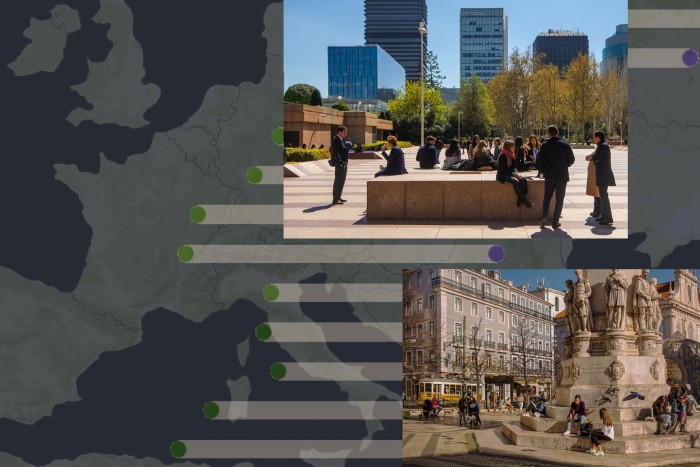
Many migrant graduates in Europe are suffering from a phenomenon often referred to as “brain waste”: either finding themselves overqualified for their new jobs, working fewer hours than they would like or, for some, spending time unemployed. A joint investigation led by Lighthouse Reports in partnership with publications including the FT shows that European countries are failing to provide good job opportunities for highly educated migrants, at a potentially significant cost to their labour forces and economies.
We’re also reading . . .
-
UK politics: Some Tory MPs think the prime minister could face a no-confidence vote if his party loses crucial local elections early next month.
-
The economics of running: Data shows that the richest Britons also run the most, writes Soumaya Keynes. But beyond that, the economic correlations are a little hazier.
-
Liz Truss: Britain’s shortest-serving prime minister sits down for Lunch with the FT to discuss her ignominious exit, the UK’s need for a “Singapore on steroids” economic model and her battle with the “deep state”.
-
Heritage buildings: Notre-Dame Cathedral, Windsor Castle and now Denmark’s iconic former stock exchange — why do Europe’s historic buildings keep catching fire during renovations?
Chart of the day
House prices in London have underperformed the rest of the UK for the past eight years, with a recent drop making it the worst-performing region. Analysts partly attributed the trend to affordability, as the capital remains the most expensive part of the country, with a typical property costing £503,000, well above the national average of £281,000.
Take a break from the news
What advice would those near the end of their careers give to those just starting out? The FT’s Simon Kuper shares the lessons he’s learned about jobs, life and money in a must-read for any young person.

Additional contributions from Nora Redmond and Benjamin Wilhelm
Read More: World News | Entertainment News | Celeb News
FT

